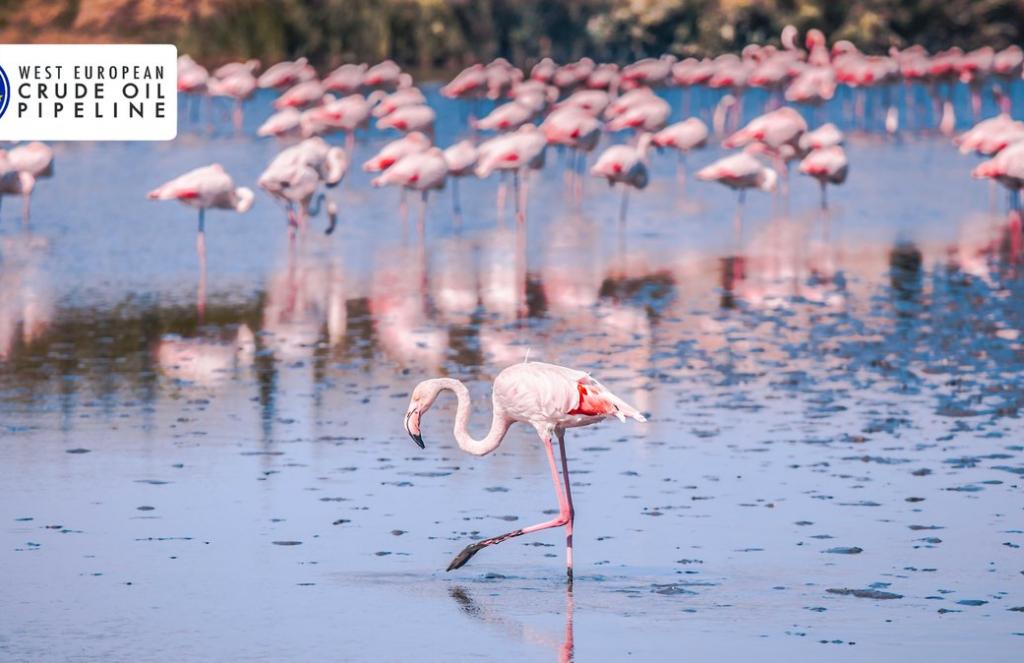Thessaloniki gets ready for its metro launch in November
The underground rapid transit lines have been under construction for almost two decades due to various project delays
 TheMayor.EU logo
TheMayor.EU logo 
One of the images used by the collective to "promote" the non-existent WECOP project on Twitter, Source: Le bruit qui court/ WECOP Twitter
A showcase where the psychological potential of false news was used for a noble purpose
Imagine waking up to social media news and board notices announcing that a large oil pipeline is set to go right through your city and for the purpose of the project your property will be expropriated. Well, at least for many residents of large cities like Paris, Grenoble, Marseille and Lyon that seemed like a reality for a brief moment last week after they encountered legit looking announcements posted on public urban spaces.
Luckily for them, it was all a hoax created by art activist collective Le bruit qui court (an expression which translates as “the rumour mill”), as a way to raise awareness about an actual oil pipeline project set to take place in Uganda and Tanzania and planned by energy giant Total Energies.
The project in question will be completed by 2025 and it will involve laying pipes for more than 1,400 kilometres, drilling hundreds of oil wells and uprooting 19,000 households in the process. However, seeing that it happens somewhere far away in a less developed continent, to most people who read this it will just seem like some abstract digits that will be quickly forgotten.
This is where the activists decided to use the psychological potential of disinformation, but this time for a noble purpose.
It is well established that the way disinformation works and gets attention is by instilling and sparking fear in its audience. That fear turns into action, usually harnessed by political actors, especially populists.
Activism on the other hand often relies on the strategy of arousing support and action through compassion stirred up by real events or facts. However, that is not always as potent a strategy among a population desensitized by living in comfort.
Julie Pasquet, co-found of Le bruit qui court, told Euronews that TotalEnergies' East African Crude Oil Pipeline (EACOP) project in Africa is largely ignored by the media. In February 2023, the request for legal action by six environmental and human rights associations to have the EACOP project cancelled was dismissed by a court in Paris.
However, the activists did not give up and designed disinformation campaign to stir real anxiety and outrage among residents, who could now feel personally what such a project would entail.
The non-existing project was called West European Crude Oil Pipeline (WECOP) and it even counted with its own Twitter account detailing how it will unfold.
Apparently, the collective also set up a hotline, with a false switchboard that received more than 1,000 concerned calls. Volunteers answered calls, offering "Total's bogus European version of the argument", as they explained.
It seems that city authorities must have been forewarned about the “false disinformation” campaign. In fact, we know for sure that one mayor even took part in it.
Eric Piolle, the mayor of Grenoble and the first Green mayor of a large French city, wholeheartedly did his part to raise awareness by acting the part a bit. On his Twitter account, he posted a video of himself relating the news of the supposed WECOP project with a serious face before explaining that if this news sounds disturbing to local residents, then they could truly empathize with the way people in Uganda or Tanzania must be feeling.
The mayor reaffirmed his support for the activists and called for the abandonment of the project.
According to Euronews, the action might have worked at least partially, because Total has announced that it is extending its funding deadline due to inability to finance the project. Apparently, major credit institutions have pulled out.

The underground rapid transit lines have been under construction for almost two decades due to various project delays

Now you can get your wine in Talence by paying directly in Bitcoin

That’s because the state has to spend money on updating the railway infrastructure rather than subsidizing the cost of the popular pass

Rethinking renewable energy sources for the urban landscape

The examples, compiled by Beyond Fossil Fuels, can inform and inspire communities and entrepreneurs that still feel trepidation at the prospect of energy transition

Now you can get your wine in Talence by paying directly in Bitcoin

The 10th European Conference on Sustainable Cities and Towns (ESCT) sets the stage for stronger cooperation between the EU, national and local level to fast track Europe's transition to climate neutrality.

At least, that’s the promise made by the mayor of Paris, Anne Hidalgo

The underground rapid transit lines have been under construction for almost two decades due to various project delays

At least, that’s the promise made by the mayor of Paris, Anne Hidalgo

Hostal de Pinós is located in the geographical centre of the autonomous region

Despite its church-y name, the district has long been known as the hangout spot for the artsy crowds

Urban dwellers across the EU are having a say in making their surroundings friendlier to people and the environment.

Forests in the EU can help green the European construction industry and bolster a continent-wide push for architectural improvements.

Apply by 10 November and do your part for the transformation of European public spaces

An interview with the Mayor of a Polish city that seeks to reinvent itself

An interview with the newly elected ICLEI President and Mayor of Malmö

A conversation with the Mayor of Lisbon about the spirit and dimensions of innovation present in the Portuguese capital














